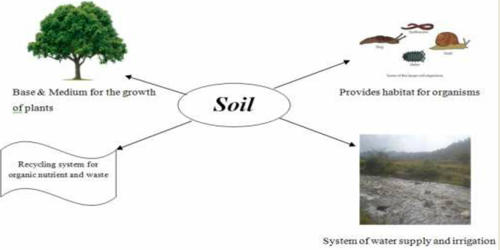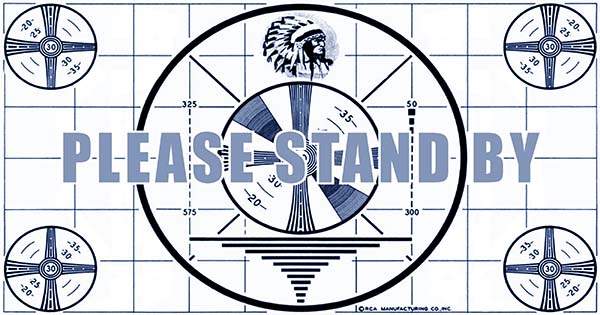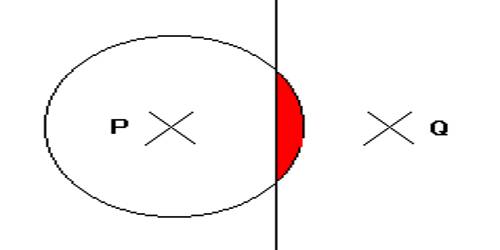All our food comes from the soil. Some of us eat meat. Of course, but animals live on plants. If there were no plants we should have no animals and no meat. So the soil is necessary for life. The top of the ground is usually covered with grass or other plants. The soil is composed of minerals (the solid part), organic matter, and air in different proportions. There may be dead leaves and dead plants on the grass. Plants grow in soil which has a dark color. This dark soil is humus. Humus contains materials that were taken from dead plants and the waste matters from animals also fall on it. This gives its color. The soil under the humus is not dark. This lighter soil is rather like sand, it is made of bits of rock. All soil needs food. If we do not give it any, the plants will be weak. The soil is able to filter unwanted and harmful contaminants away from the roots of plants and trees.
Animal waste is the best food for the soil, but chemical fertilizers are also very useful. The same crop ought not to be grown in the same place every year, it is better to have a different crop. The soil provides plants and trees the protection needed against erosion and being swept away in heavy rainstorms. A change of crop and the use of good fertilizer will keep the land in good condition. When the soil is dry, the wind blows it away. Some of the humus is lost, and if this continues, the land will soon look like a desert; the farmer ought to prevent this. He can grow trees near his fields. These will stop the force of the wind and then it cannot blow the humus away. The soil is important to humans and all living things on earth because it is the source of four essential ‘living’ factors, namely, food, clothes, shelter, and medicine, all of which either directly or indirectly coming from the soil. The level of water the soil can contain depends on the type of soil. When compared to sandy soil water retention, clay soil will hold water for a longer period of time. Through the study of soil, people can learn how to tailor management practices to the specific needs of each kind of soil.
Soil functions – Soil is important for the various functions it provides plants, trees, animals, and humans.
- Soils support roots and keep them upright for growth.
- Soils provide plants with essential minerals and nutrients
- Soils provide air for gaseous exchange between roots and atmosphere.
- Soils protect plants from erosion and another destructive physical, biological and chemical activity.
- Soils hold water (moisture) and maintain adequate aeration.
- Soil provides nutrients, support, protection, and filtration in its multi-functions.
Soil is necessary for living beings like human beings and the plant world. Soil needs food. Soil becomes weak for want of food. Animal waste, dead plants, and chemical fertilizers are the foods of soil. The most important factors influencing the soil formation consist of five factors including climate, parent material, topography, organism, and the time that controls the process of addition, change, movement, and loss of matters and energy that occur in the soil. The same kind of crop should not be grown in the same place every year. A change of crop and the use of good fertilizer will keep the land in good condition. Farmers can prevent the blowing of humus by planting more trees. Soil gives root systems the needed support to keep plants and trees from being uprooted during severe windstorms and other types of weather. Soil is an essential natural resource, so it is important that people know how to properly use and protect it.
















